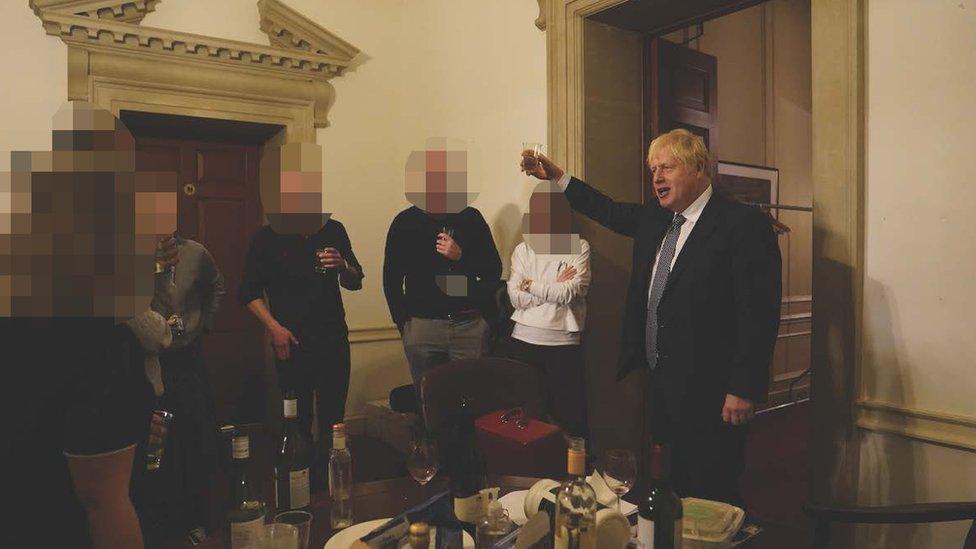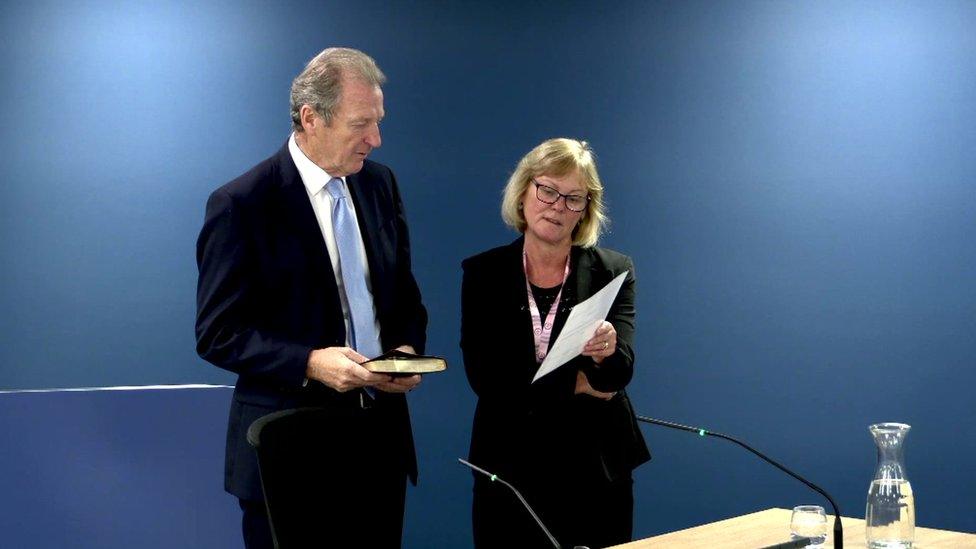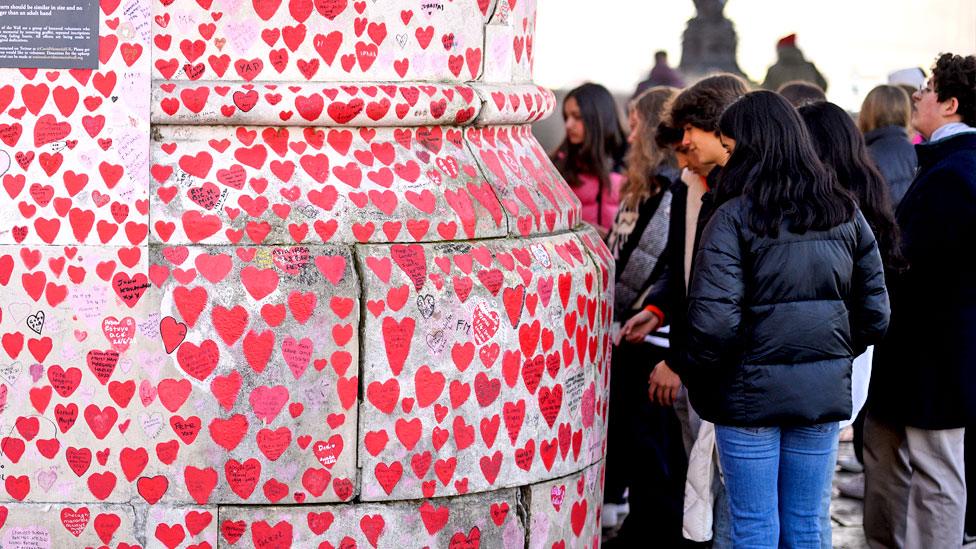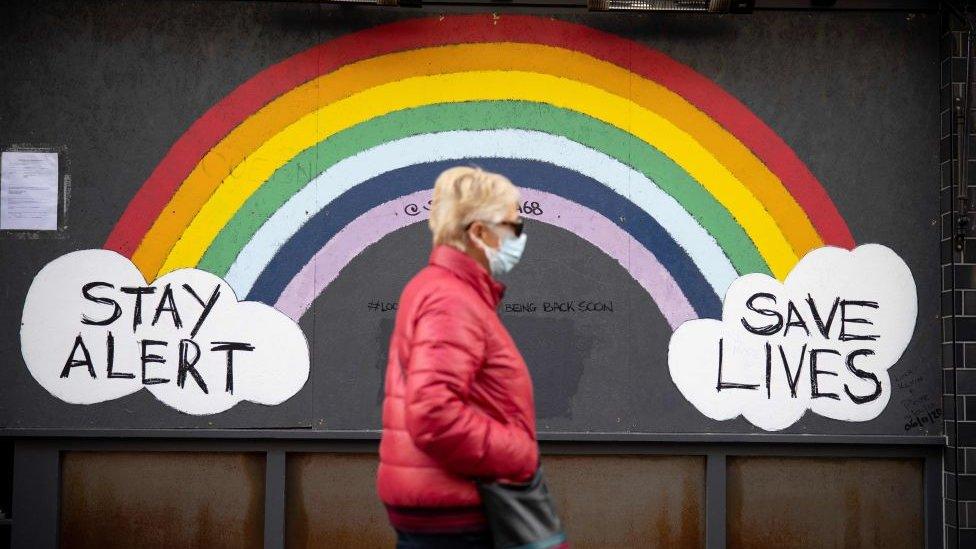Partygate revelations destroyed trust in government, inquiry told
- Published

Photo from November 2020 showing then prime minister Boris Johnson in Downing Street
The Downing Street partygate scandal has damaged the ability of governments to deal with future health crises, the Covid inquiry has heard.
Giving evidence, former cabinet secretary Lord O'Donnell said "under no circumstances" would he have allowed similar parties to take place.
Police issued 126 fixed penalty notices to 83 individuals over events held in and around Number 10 in 2020 and 2021.
At the time, Boris Johnson said he "fell short" of his own rules.
Lord O'Donnell, then known as Gus O'Donnell, led the civil service from 2005-2011 under the administrations of three former prime ministers: Tony Blair, Gordon Brown and David Cameron. He now sits as a crossbench peer in the House of Lords.
Asked about the impact of lockdown breaches by Downing Street officials during the pandemic, he said "without a doubt" the revelations were destructive to public trust.
"You can imagine - there having been lots of lapses this time - if you were trying to do this again, would you get the same levels of compliance?" he said.
"You really need maximum trust [in government]."
"So yes, it has been damaging, and damaging to the future ability of governments to get across behavioural issues."
'Caught in the middle'
Earlier, the inquiry's chief counsel, Hugo Keith KC, read out a diary entry written by the government's then chief scientific adviser, Sir Patrick Vallance, on 11 November 2020.
Sir Patrick quoted cabinet secretary Simon Case as saying Downing Street was "at war with itself", and Prime Minister Boris Johnson was "caught in the middle", amid disagreements between government advisers and other officials.
"He [Simon Case] has spoken to all his predecessors as cabinet secretary and no one has seen anything like it," wrote Vallance, in his 2020 diary.
Lord O'Donnell confirmed he was one those predecessors referred to in the diary entry: "To my mind, it means that Simon Case was dealing with a far, far more difficult situation than I ever had to face."

Former cabinet secretary Lord O'Donnell is sworn in at the Covid Inquiry in west London
In other testimony, Lord O'Donnell suggested the type of scientific and technical advice available to ministers should be expanded to include experts in more areas.
The Sage group of scientific advisers, which met regularly through the pandemic, was largely made up of epidemiologists, who study the spread of disease, alongside mathematical modellers and behavioural scientists.
Lord O'Donnell suggested, in the future, Sage needs to be part of a broader group which includes specialists in other subjects as well.
"If the question you are asking is 'shall we close schools?', then you need experts on the impact on education, on children, on parents, on the general effect on the economy," he elaborated. "As well as the things which Sage would be really good at answering, which is the impact on transmission.
"You need to balance these things together, which is a hard thing to do."
This second stage of the Covid Inquiry is examining political decision-making during the pandemic, from January 2020 until February 2022, including the timing and effectiveness of lockdowns and other social-distancing restrictions.
It is taking witness evidence in London until Christmas, before moving to Scotland, Wales and Northern Ireland to look specifically at the decisions made by administrations in those parts of the United Kingdom.
- Published3 October 2023

